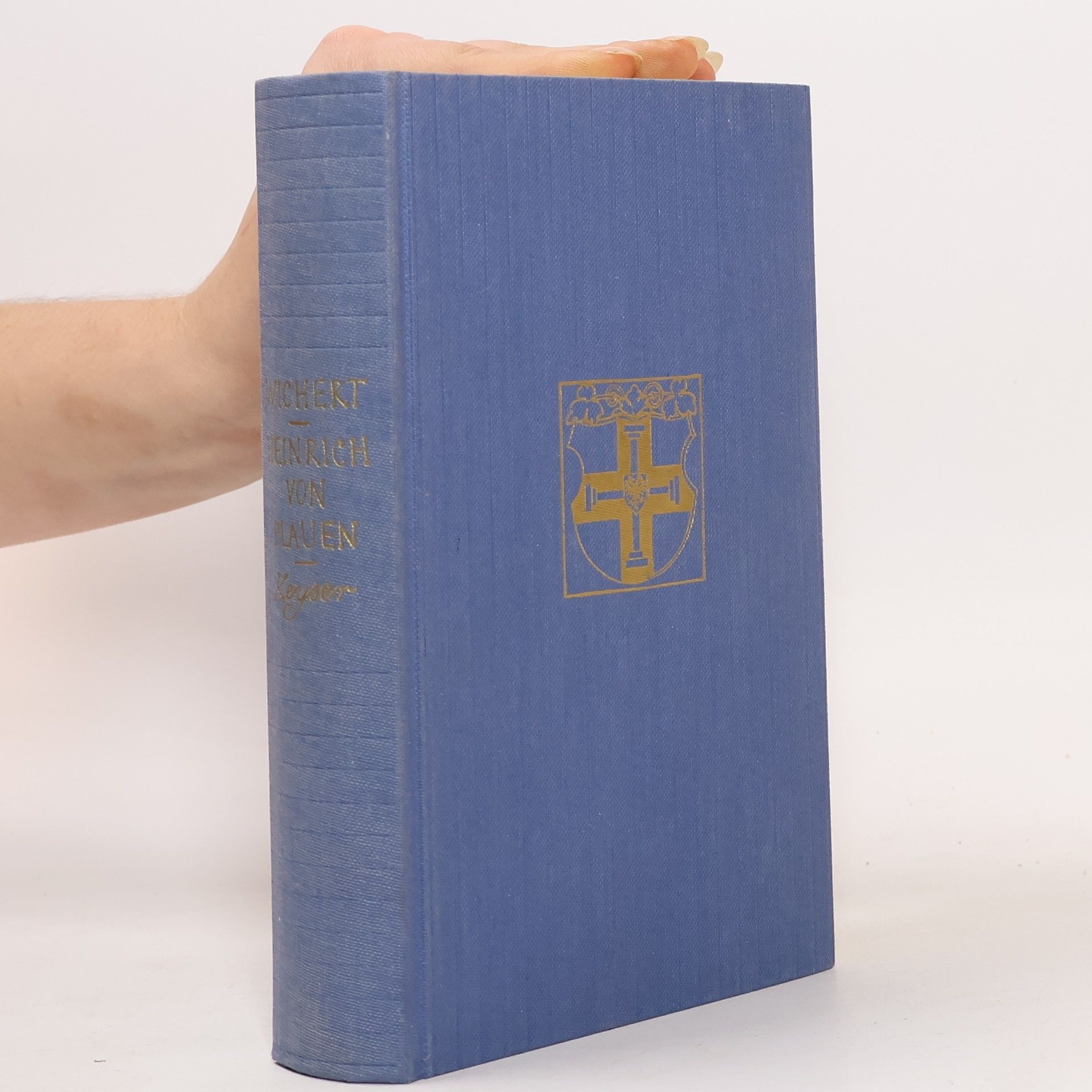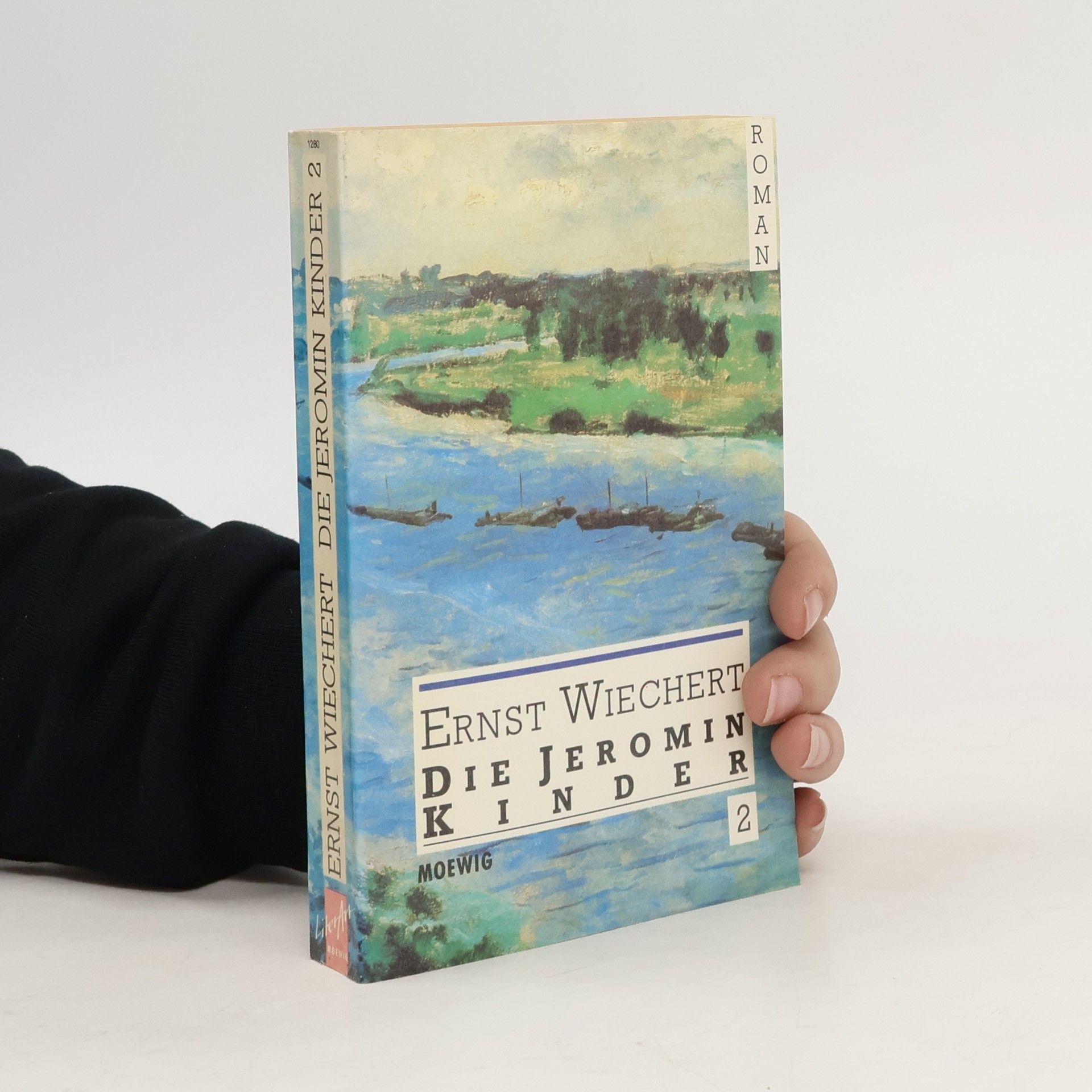Das einfache Leben. Roman
Ein wichtiges, wieder entdecktes Buch von einem der meistgelesenen deutschen Autoren
Ernst Wiechert, a German teacher, poet, and writer, championed the virtues of simplicity, humility, and ideal love in his work. Despite his opposition to the Nazi regime, which led to his internment, his legacy is complex due to his enduring popularity under that regime. Nevertheless, his writings consistently attest to his steadfast defense of his beliefs, including a novel advocating a good life as an answer to the era's malaise. His critical writings, preserved after the war, serve as a testament to his experiences and a memorial to the dead.






Ein wichtiges, wieder entdecktes Buch von einem der meistgelesenen deutschen Autoren
Die beiden Erzählungen "Hirtennovelle" und "Der brennende Dornbusch" von Ernst Wiechert thematisieren menschliche Erfahrungen und spirituelle Fragen. Die "Hirtennovelle" entführt den Leser in die Welt der einfachen Menschen und deren Lebensweisen, während "Der brennende Dornbusch" biblische Motive aufgreift und tiefere Einsichten in den Glauben vermittelt. Die vorliegende Ausgabe ist in lesefreundlichem Großdruck und berücksichtigt die neue deutsche Rechtschreibung. Ernst Wiechert, ein bedeutender Autor des 20. Jahrhunderts, lebte und litt in turbulenten Zeiten, was sich in seinen Werken widerspiegelt.
Ernst Wiecherts Roman "Die blauen Schwingen" erscheint in einer lesefreundlichen Großdruckausgabe und wurde behutsam an die neue deutsche Rechtschreibung angepasst. Der Autor, geboren 1887 in Masuren, war ein bedeutender Schriftsteller, der nach dem Ersten Weltkrieg und persönlichen Tragödien in Deutschland lebte, bevor er 1950 starb.
Ernst Wiecherts "Der Totenwald" schildert schonungslos die Erfahrungen des Intellektuellen Johannes im Konzentrationslager. Der Bericht reflektiert die Menschenverachtung der Lagerführung und die Solidarität unter den Häftlingen, basierend auf Wiecherts eigener Haft in Buchenwald 1938. Der Text wurde an die neue deutsche Rechtschreibung angepasst.
Ernst Wiecherts Roman „Die Magd des Jürgen Doskocil“ (1932) erzählt von menschlichen Schicksalen in schwierigen Zeiten. Diese Ausgabe, bearbeitet von Theodor Borken, bietet einen lesefreundlichen Großdruck und wurde an die neue deutsche Rechtschreibung angepasst. Wiechert, ein bedeutender Autor seiner Zeit, erlebte eine bewegte Lebensgeschichte.
Ernst Wichert (1831-1902) war ein bedeutender deutscher Schriftsteller und Jurist, der die ostpreußisch-litauische Heimat in seinen Werken lebendig werden ließ. Besonders in seinen Litauischen Geschichten zeigt sich die Verbundenheit zur Natur und Kultur seiner Heimat, die auch heute noch in Deutschland geschätzt wird.
"Manchmal, wenn ich vorlese, in großen Städten und besonders in fremden Ländern, widerfährt es mir, daß ich den Gang entlangblicke, der von meinem Pult zwischen den Menschen an das Ende des Saales läuft. Und dann wird er plötzlich vor meinen Augen immer länger, so wie eine endlose Straße, die zwischen dunklen Büschen bis an den Rand der Erde läuft. Und dort hinten, wo die Ränder schon zusammenfließen, sehe ich mich dann stehen, wie ich einmal war: ein Kind, barfuß, den Hirtenstab in der Hand, das mit seiner Herde auszieht, um seine Welt zu erobern. (...) In solchen Augenblicken habe ich dies Buch wohl begonnen, lange bevor ich es zu schreiben begann." (Zitat S. 3 in diesem Buch) Die Kindheit und Jugend des Dichters Ernst Wiechert in einem romantisch gelegenen, einsamen Forsthaus - umringt von den Wäldern und Seen Ostpreußens - zählt zu den schönsten Erinnerungsbüchern in deutscher Sprache. Eine faszinierende, romanhafte Autobiografie - "Wälder und Menschen" gilt bis heute als vielgelesenes Werk. Hier liegt das 1936 erstmals erschienene Buch in einer Taschenbuch-Neuausgabe vor. Ernst Wiechert. Wälder und Menschen. Eine Jugend. Erstdruck: Verlag Albert Langen und Georg Müller, München 1936. Durchgesehener Neusatz, der Text dieser Ausgabe folgt dem Erstdruck. Vollständige Neuausgabe, LIWI Verlag, Göttingen 2022. LIWI Literatur- und Wissenschaftsverlag
"So ging es sich also, wenn der Tod einen zwischen den Schultern berührt hatte. Es ging sich leicht wie auf Flügeln, aber unter der Erde ging es mit, und was dort mitging unter den Füßen, war nicht leicht und wie auf Flügeln, sondern dunkel und schwer wie der Saft des Mohnes." (Zitat auf S. 3 in diesem Buch) Ernst Wiechert. Missa sine nomine. Roman. Erstdruck: Kurt Desch Verlag, München 1950. Durchgesehener Neusatz, der Text dieser Ausgabe folgt: Kurt Desch Verlag, München 1954. Taschenbuch-Format (Paperback). Vollständige Neuausgabe, LIWI Verlag, Göttingen 2022. LIWI Literatur- und Wissenschaftsverlag.
Roman
In diesem frühen Roman Wiecherts sind der Krieg und dessen Grausamkeiten allgegenwärtig, gleichzeitig treten die typischen Merkmale und Themen des Schriftstellers bereits deutlich Seine enge Verbundenheit zur Heimat, die Liebe zur Natur und das Geborgensein in der Wildnis. Das Werk von 1925 beinhaltet ebenfalls erste Anklänge der Sehnsucht nach Stille, dem Wunsch nach einem einfachen Leben und der Skepsis gegenüber der Moderne.-